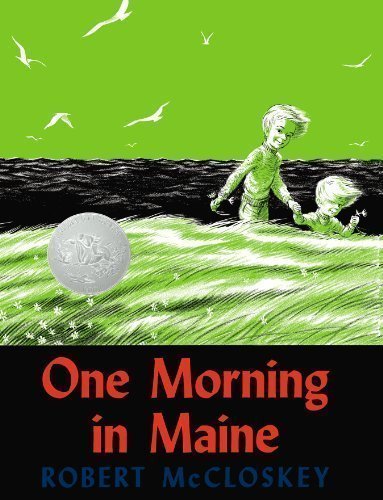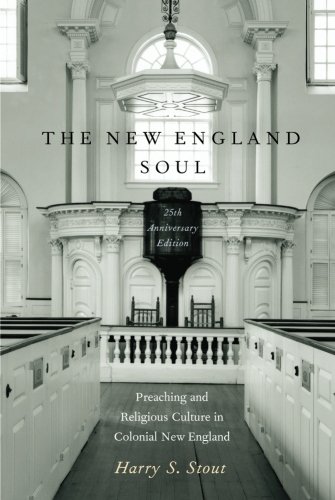We have long been
Robert McCloskey fans, but I made a new discovery today. We have
Blueberries for Sal and
Time of Wonder, but had not had the chance to read
One Morning in Maine until we got it from the library last night. I read it to the kids before bed, and noticed that the heroine's name is the same as in
Blueberries--so while Mommy was at a brunch this morning I suggested to the kids that while the babies were napping we spend the morning in Maine, reading
Blueberries for Sal, then
One Morning in Maine to see her as a toddler and then as a "big girl," then read
Time of Wonder just to keep in the vein. When we finished
Blueberries, however I read the biographical sketch of McCloskey at the end and realized his books are autobiographical!

He was born in Ohio in 1914 and raised there; and
Lentil is set in a small Ohio town in what appears to be the late nineteen-teens or early nineteen twenties...
... he won a scholarship to Vesper George Art School in Boston in 1932, where he no doubt received the inspiration for
Make Way for Ducklings which is set in Boston in what appears to be the 1930s...
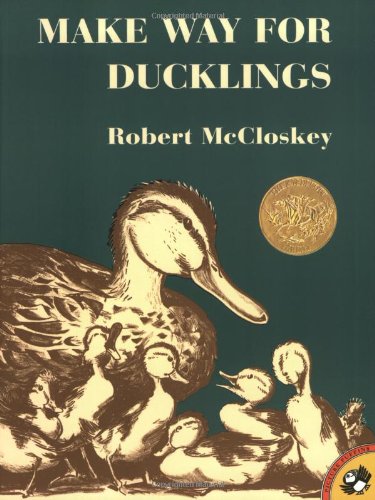
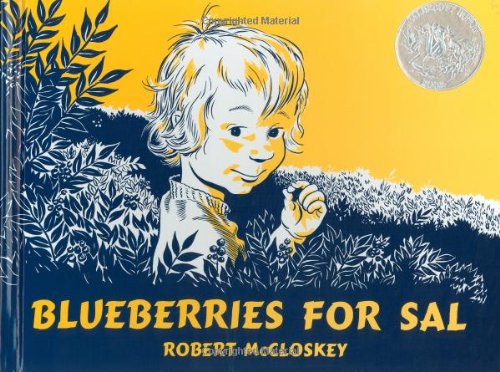
... then he lived most of his adult life in Maine where he and his wife, Peggy, raised their daughters Sally and Jane (of
One Morning in Maine fame).
My guess is that they lived on the mainland at first, where Sal's mom drives a car to Blueberry Hill to pick blueberries with Sal, and later moved to the island from which Sal and Jane's father rows them across to Buck's Harbor for ice cream and to fix their outboard in
One Morning in Maine.
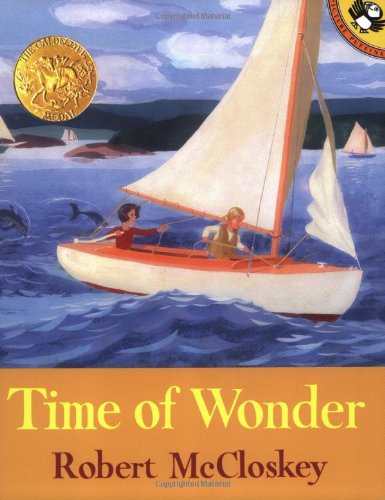
The next surprise that began to occur to me as we read (okay, the kids didn't make it all the way through this one as their attention was starting to wain...), was that
Time of Wonder is the McCloskey family a few years later as the story follows
two girls, probably around ten to fourteen years old, from spring through fall as they live with their father, mother
, and dog (who looks like Penny from
One Morning) on an island near Buck's Harbor in a world populated with some of the same characters as
One Morning. This book, which was a gift to us from our friend Joel, also contains two allusions to God's watchful care over His children: the pair of eyes watching over all, above the hundred pairs watching you as you row back to the dock in the night (Ps. 146:9, Jer. 1:12, Zech. 2:8); also the rainbow cast by the moon toward the end of the storm, "a promise that the storm will be over soon" (Genesis 9:13-17). I don't know what McCloskey's specific religious views were, but he has done a masterful job of weaving these comforting biblical images into a beautiful book.
Given
Time of Wonder ends with the family departing the island "for the last time this year" it appears that the island home is not their permanent home, so maybe the car-accessible house in
Blueberries is their destination... Anyway, we thoroughly enjoyed our morning in Maine, and I want to heartily recommend McCloskey to all.







